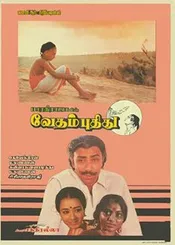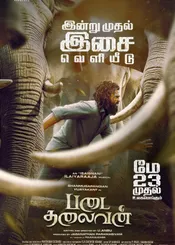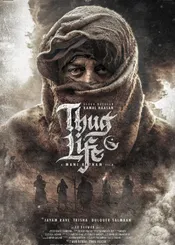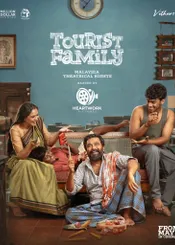Casting
Crew
Director
Producer
Writer
Screenplay
Music
Cinematography
Editor
Production
Distributor
Details
- Status Released
- Release date 27 Dec 1987
Awards
FAQs
Balu Thevar and Pechi, a couple, live in a village and belong to a land-owning caste (Thevar), held supposedly lower in the Vedic caste system hierarchy than Brahmins. Balu though, is an atheist and speaks openly against the caste system, but is nevertheless tolerated by the villagers because he is generous in helping others in need. Their son Sankarapandi has just returned from the city, having completed his education. He meets Vaidehi, the daughter of a Tamil Brahmin priest Neelakanta Sastrigal, and they fall in love.
One night, Sankarapandi and Vaidehi are together in a temple, when Balu is discovered after hiding Vaidehi. To atone for his son's "crime," Balu prostrates before the Brahmins. Afterwards Vaidehi tells her father about their love, who then tells Balu. Neelakanta tries to marry her off to another man in a neighbouring village, but she fakes her death and hides in the house of a forest ranger, that she happens to pass by. Thinking Vaidehi is dead, Neelakanta confronts Sankarapandi at a waterfall and accuses him of causing her death. During the confrontation, Sankarapandi accidentally falls, but holds onto a plant. Neelakanta tries to save him, but both fall to their deaths.
Vaidehi's younger brother Sankara, who is devoutly studying the Vedas and passing through the student phase of his Brahmin life, is left orphaned. Being considered inauspicious, since his mother, father, and sister are all dead, no one from the Brahmin community wants to take care of him. He thus wanders the streets begging for food. Balu, bothered by this, and having lost his own son, starts raising Sankara as his own son. Balu and Pechi quit eating meat, to not offend Sankara. However, since Sankara has been eating in a lower caste home, he is rejected by his community from learning the Vedas.
Pechi, enraged with Sankara's ostracisation, promises to educate him in an English medium school. Balu later makes fun of Sankara telling him that it is not important to learn Vedas and worry about caste. At this point, Sankara notes Balu's own hypocrisy: his preference for using his caste name (Thevar), while at the same time professing against the caste system. Balu sees the merit in this argument, and immediately abandons all his weapons, symbols of his Thevar status, by immersing them in a river, and stops referring to himself by his caste name.
Vaidehi, not knowing of Sankarapandi and her own father's death, tells the forest ranger about her love, after which he promises to reunite them. The forest ranger comes to the village and finds out what has happened. After returning, he informs Vaidehi. Vaidehi, then sadly returns to her village, tells Pechi to take care of her younger brother for the rest of his life and prepares to leave. She reunites with Sankara.
Krishna Iyer, who had wanted to marry Vaidehi but was rebuked, sees her return. He aggravates the villagers with news of Vaidehi's return and says it is inauspicious for the village, since her last death rites have already been performed. Krishna adds that it is improper for Brahmins to live in a non-Brahmin house; He then sets some hay on fire and tells the villagers it is God's disapproval of these two "crimes". Krishna assembles a mob towards Balu's house, and they demand Balu throw Vaidehi out. Balu refuses, a fight breaks out, and in the ensuing scuffle, he is stabbed and dies. His final request is for the villagers to live in unity, and not let caste divide them.
The next day, Sankara, having lost two fathers, removes his poonal and immerses it in a stream, disgusted with and in open defiance of Brahminical beliefs, while performing the last rites of Balu as though he were his own son.
No review available.
Write review


















